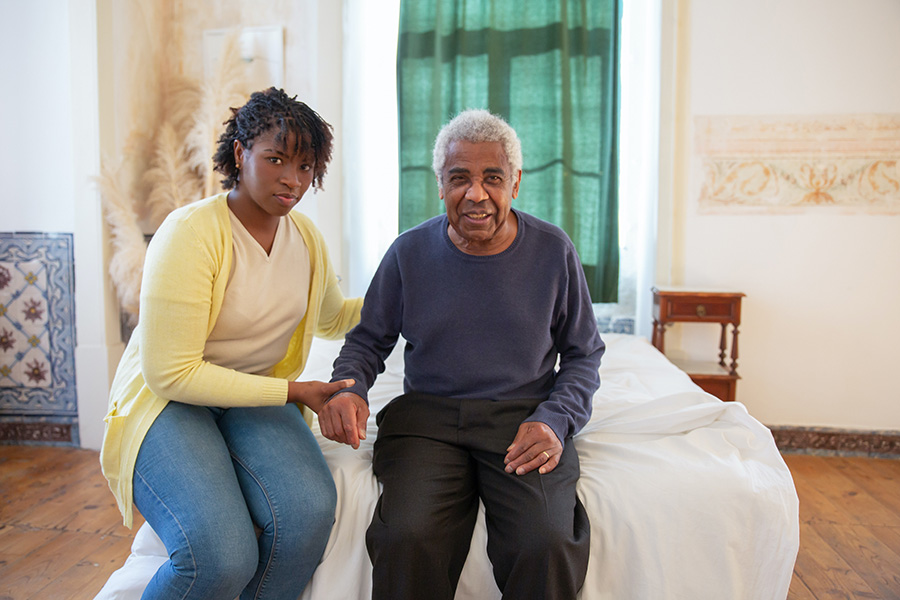Health
Seniors: What You Should Know About Home Health
Learn about the advantages of home health for seniors, including personalized care and addressing social health needs for a holistic approach to recovery.

By Andrew Agwunobi, M.D.
One of the major lessons learned during the pandemic is that hospitals and medical facilities are not always the safest places to recover, especially for seniors and those living with chronic conditions.
Compounding this issue is that 85 percent of seniors in the U.S. live with one or more chronic conditions. With the state of Virginia home to over 1.4 million seniors, this is a very real, local issue.
The home is often the most comfortable, convenient and safe place to recover from an illness, injury, surgery or hospitalization. However, seniors in Virginia may not be aware that this option is available to them.
Many also don’t know what Home health offers. Home health can include skilled nursing care, physical, occupational, and speech therapy, as well as advanced specialty care for diabetes, complex wounds, heart failure and balance and mobility conditions.
If you have Original Medicare or a Medicare Advantage health plan, home health benefits are often covered at no cost – although it’s always good to check with your insurance provider.
There are many advantages to receiving care in the home. In addition to safety and convenience, it is usually less expensive and just as effective as the care provided in a hospital or skilled nursing facility. It can also offer a more holistic approach to care – addressing both physical and mental well-being as well as assessing various social health needs.
The Whole-Person Approach to Home Health
Because home health clinicians, for example, nurses and therapists, bring care to patient homes, they’re able to spend more time with patients and get to know all the factors that are impacting their health. This allows clinicians to engage and collaborate with patients and their family –building relationships and friendships, understanding their goals and challenges, and providing the tools they need to regain their independence.
One of the benefits of being cared for in the home is that home health clinicians can identify challenges a patient may be experiencing as well as potential safety risks that could impede recovery or cause further harm.
For instance, having a healthy diet and proper nutrition is vital to a person’s ability to recover from an injury or illness and is also critical for the health of patients with conditions such as diabetes, high blood pressure and heart failure. Home health clinicians are specially trained to educate patients and their caregivers on a personalized nutrition plan. Prior to developing that plan, they’ll assess whether the patient is experiencing food insecurity (or other social health challenges), and if so, help secure the appropriate food sources and assistance programs.
Similarly, home health clinicians can identify home safety issues that could cause trips and falls, such as slippery areas and throw rugs, lack of stair handrails or difficult-to-reach household items. For example CenterWell Home Health’s Safe Strides® program employs a multidisciplinary care team to get to the root of balance issues and reduce falls risk by assessing patients’ inner ear, visual, sensory and musculoskeletal functions, as well as the safety of their home environment.
Seniors should speak with their health care provider to understand if home health is right for them. Whether they’re being discharged from a hospital or rehabilitation facility, or have an ongoing medical condition that has become difficult to manage – the home may be the best place to recover so they can get back to doing the things they love.
Andrew Agwunobi, M.D., is CEO of CenterWell Home Health.
Photo by Kampus Production














